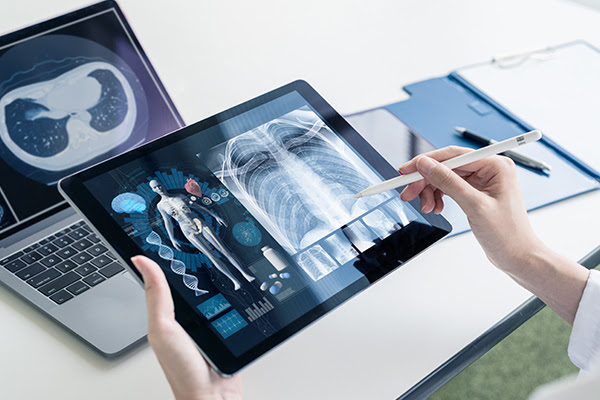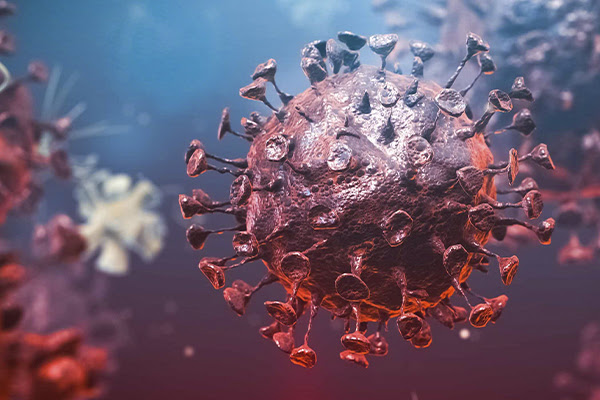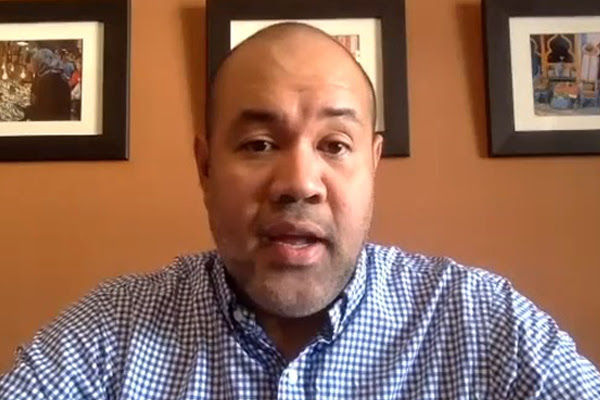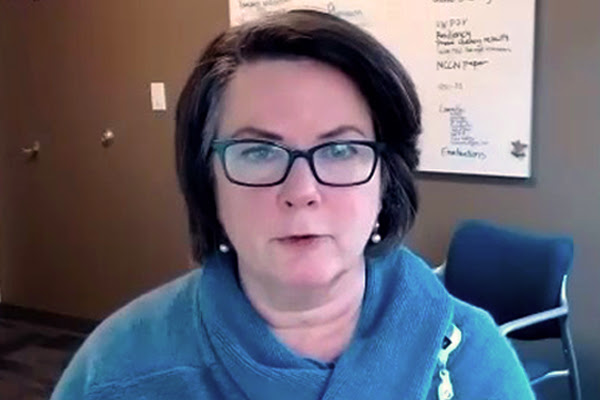|

In response to the critical need for continued oncology care during the COVID-19 pandemic, APSHO is bringing you this special series of stories from oncology advanced practitioners about their COVID-19 experiences, strategies for managing this crisis, and ways we can take care of ourselves, our families, and our colleagues.
APSHO has also organized resources to help in your response to COVID-19.
APSHO Members: We invite you to connect with one another to share advice, resources, and support in the APSHO member forums (login required).
Week 9 (May 29)
Week 8 (May 22)
 |
AP Role
Development of a SARS-COV-2 Testing Algorithm at a Cancer Center
The University of Washington and Seattle Cancer Care Alliance have created rigorous testing guidelines for infection control and the testing of oncology patients.
Leah Hampson Yoke, MCHS, PA-C, describes the development of these guidelines.
|
 |
AP Role
COVID-19 and Pain Management in Oncology Care
Pain management is an essential part of oncology care. During the COVID-19 pandemic, accessibility to prescribers has been limited. Recognizing this barrier, the DEA modified some restrictions to access.
|
 |
AP Role
Outpatient Clinical Pharmacy Response to COVID: One Center’s Approach
Oncology clinical pharmacists at the University of Colorado Cancer Center detail the adjustments they've made to reduce the number of potential patient exposures while continuing to provide high-quality clinical services to care
teams and patients.
|
 |
AP Role
Temporary Changes for Hospice Programs
In late March, CMS made temporary changes to certain hospice regulations in order to allow hospice programs to continue providing care and support to terminally ill patients and their families.
|
 |
AP Role
Strategies for a Phased-in Approach to Oncology Care in the Era of COVID-19
On Thursday, June 11, at 2:00 pm EDT, APSHO will be
hosting a live, interactive webinar to discuss how to begin reopening
oncology care back to its fullest capabilities. Modeling the CDC
guidelines for reopening America, this webinar will direct learners in
applying these guidelines to the practice of oncology.
|
Week 7 (May 15)
 |
Telemedicine
Delivering Difficult News Using Telehealth During COVID-19: Lead the Way
Conveying difficult news to patients has always been central to advanced practice, but social distancing has made it even more challenging. Deborah Rust, RN, MSN, CRNP, AOCN,
describes a step-by-step approach for patient-centered communication on a virtual call.
|
 |
AP Role
The Role of Advanced Practitioners in Radiation Oncology During the COVID-19 Pandemic
How are cancer centers dealing with patients who need to come into the treatment facility for radiation therapy? Kaitlyn Coucoules, MS, PA-C, of Moffitt Cancer Center, describes Moffitt’s collaborative approach to reducing the risk of transmission while providing therapy to the patients who need it most.
|
 |
Telemedicine
Telehealth, Health Safety Precautions, Increased Isolation Part of New Normal for Cancer Patients Amid COVID-19 Pandemic
As cancer centers institute policies to reduce the risk of infection, patients are experiencing myriad changes in their care, including enhanced use of telehealth and increased isolation.
|
 |
AP Role
What Does It Mean to Be Furloughed?
There are important things to know if you are furloughed, including what to expect from your employer and benefits that you can apply for while furloughed.
|
 |
Telemedicine
Checklist for Setting Up Telemedicine in Your Practice
Read on for a checklist of the steps you need to take when starting a telemedicine program, including picking a virtual platform and coordinating with your scheduling and billing teams to develop a process.
|
|
|
|
|
Week 6 (May 8)
 |
AP Role
Assessing and Treating Patients on Immune Checkpoint Inhibitors During the COVID-19 Pandemic
Patients on active cancer therapy usually require some level of pretreatment bloodwork, symptom assessment, and physical exam. All of these, including often the actual treatment itself, require the patient to be onsite.
How do we manage patients' side effects from treatment, recognize possible symptoms of COVID-19, and distinguish between the two accurately?
|
 |
Leadership
Mayo Clinic NP/PA Hematology Fellowship Goes Virtual: Keeping Education Going in the Midst of a Pandemic
The NP/PA Hematology Fellowship Program at Mayo Clinic has reorganized its training curriculum to keep fellows learning and, most importantly, safe. Clinical rotations and didactic lectures have been converted to telehealth
visits and online learning and research.
|
 |
Telemedicine
Updated Guidance on Billing for Telehealth
On April 29, the CMS issued updated guidance on Medicare telehealth, recognizing that some Medicare beneficiaries do not have access to or choose not to use interactive audio-video technology.
|
 |
AP Role
Enduring Financial Toxicity in Health-Care Systems
Health-care systems are experiencing unprecedented financial stressors as they take on the costs of converting beds, buying equipment, implementing virtual health-care protocols, and more. At the same time, access to
health care is becoming even more financially unattainable.
|
 |
AP Role
REMS Changes Due to the COVID-19 Pandemic
In response to the COVID-19 pandemic, the FDA published an updated policy for Risk Evaluation and Mitigation Strategies (REMS) requirements.
|
|
|
|
|
Week 5 (May 1)
 |
Telemedicine
Telehealth Initiatives for the Advanced Practitioner Amid COVID-19
Sara Toth, FNP-C, AOCNP®, AGN-BC, considers the variety of services oncology advanced practitioners can provide through telehealth, including virtual warfarin clinics and having advance care planning discussions, and provides tips for being proactive with telehealth.
|
 |
Finance
"Don't Panic": Tips for Keeping Your Financial Investments Safe During the COVID-19 Pandemic
A certified financial planner shares his expertise on what APs should consider when managing retirement plans and finances in this volatile time.
|
 |
AP Role
Considerations of COVID-19-Specific Myeloma Guidelines in New York City
Advanced practitioners and staff in the multiple myeloma program at Mount Sinai Hospital in New York City describe the collaborative effort to modify patient care guidelines during the pandemic.
|
 |
AP Role
Commentary on COVID-19-Specific Myeloma Guidelines: The Cleveland Clinic Approach
Beth Faiman PhD, MSN, APRN-BC, AOCN®, FAAN,
reflects on insights that can be gained from the experience in New York City from her perspective at the Cleveland Clinic.
|
 |
Clinical Trials
Conducting Research During the COVID-19 Pandemic
The COVID-19 pandemic has had a tremendous impact on the conduct of clinical trials worldwide. The authors discuss anticipating, mitigating, and adapting to various challenges to clinical trial operations while maintaining the safety of staff and patients.
|
 |
AP Role
Sitting on the Sidelines of COVID-19: Survivor Guilt
The concept of survivor guilt is appearing more frequently in nursing, medicine, and psychology literature, and may be manifesting for health-care providers in the current pandemic.
|
|
|
Week 4 (April 24)
 |
Telemedicine
The Physical Exam Via Telemedicine
As telehealth visits become more frequent, advanced practitioners (APs) may need to start conducting virtual physical exams.
Beth Faiman PhD, MSN, APRN-BC, AOCN®, FAAN, demonstrates steps for how she administers a physical exam via telemedicine while maintaining a strong connection with the patient.
|
 |
AP Role
Recommendations for Continuing Bone-Modifying Agents During the COVID-19 Pandemic
Kathy Sharp, MSN, FNP-BC, CCD, reviews options for delaying or finding alternate administration routes for agents used for cancer treatment–induced bone loss or to treat bone metastasis and osteoporosis.
|
 |
Telemedicine
APSHO Webinar Empowers Advanced Practitioners to Utilize Telehealth During COVID-19 Pandemic
For many health-care providers, including APs, limited experience and constantly evolving rules and guidelines for telehealth have made it difficult to know where to start. A recent APSHO webinar detailed new regulations and provided
helpful tips on setting up and using the technology for efficient and safe patient care.
|
 |
Telemedicine
An Expert Answers Your Questions on Telehealth During the COVID-19 Pandemic
Jason Astrin, PA-C, MBA, DFAAPA, answers frequently asked questions about various telehealth topics, such as billing, reimbursement, scheduling, and the future of telehealth.
|
 |
AP Role
Diagnosis and Management of a Patient With Glioblastoma and COVID-19
Patients with cancer who are immunosuppressed are at a higher risk for viral infections. When a patient presents to the clinic with symptoms, it is imperative that the AP identify and recognize the potential for COVID-19 infection.
|
 |
AP Role
Delivering Bad News During a Pandemic
Having difficult conversations is intrinsic to being an oncology AP, but as these conversations happen more often via telephone or video conference, it is more important than ever to have honest and open communication, especially at the end of life.
|
 |
AP Role
Self-Care During COVID-19, for Your Sake and Others’
Nancy M. Nix, PharmD, BCPS, BCOP, provides suggestions from the CMS and various health systems and state health departments for implementing positive habits during this stressful time.
|
Week 3 (April 17)
 |
Telemedicine
Keeping Bone Marrow Transplant Patients Safe and Healthy During the COVID-19 Pandemic
In addition to taking precautions against COVID-19 exposure, bone marrow transplant patients and their providers are navigating other hurdles, including coordinating transplants and dealing with donor cell transport delays.
Cathy Featherstone, FNP, talks about how advanced practitioners are stepping up to the challenge.
|
 |
Clinical Trials
Communication and Collaboration: Keys to Clinical Trial Management Success During the COVID-19 Pandemic
Many oncology/hematology clinical trials are being put on hold, and others are being amended. Among all of the challenges this brings, Allyson Price, PA-C, provides insights on the value of cross-institutional collaboration
and open communication.
|
 |
AP Role
Oncology AP Self-Care in This Pandemic—Really?
Andy Guinigundo, MSN, RN, CNP, ANP-BC, considers health-care providers' new reality and asks friends about how they're finding a healthy balance in mind, body, and spirit.
|
 |
AP Role
Navigating the Care of Patients With Advanced Prostate Cancer Amid the COVID-19 Pandemic
With daily updates in COVID-19 statistics and changing practice recommendations, providers must rethink day-to-day clinical practices. Emily A. Lemke, DNP, AGPCNP-BC, AOCNP®, reviews evolving guidelines for the management
of patients with prostate cancer.
|
 |
AP Role
PA Crafts Masks in Response to National PPE Shortages
Paige M. Goforth, PA-C, is taking up the task of crafting masks and speaks to APSHO on key considerations when making them, including distinguishing between different types and creatively utilizing the supplies we have at home.
|
Week 2 (April 10)
 |
AP Role
Caring for Patients During a Pandemic
The editor of the APSHO Advance, Pamela Hallquist Viale, RN, MS, CNS, ANP, reflects on the roles of health-care providers—both those at the bedside and those who are removed from direct patient care—and the rise of telehealth
use to minimize the risk of infection.
|
 |
Clinical Trials
AP Perspective on Oncology Clinical Trial Management Challenges During COVID-19 Pandemic
The current global health crisis is affecting ongoing and future oncology clinical trials in different ways, creating new challenges in staff availability but also opportunities for using telehealth creatively.
|
 |
Telemedicine
Rapid Expansion of Telehealth Allows Clinicians to Provide Quality Care at Home
As the COVID-19 pandemic brings nonessential travel to a near standstill, health-care systems are innovating ways to utilize technology and continue to provide high-quality care. Listen to this conversation to find out how
in only 2 weeks UCHealth expanded telehealth services in response to the pandemic.
|
 |
Leadership
APs Helping APs Prioritize Self-Care in the Clinic, at Home, and on the Front Lines of the COVID-19 Pandemic
As advanced practitioners care for patients battling the novel coronavirus, find innovative and safe ways to continue treating their current patients, and keep up with the constant, day-to-day changes, it’s just as important
for them to prioritize their own self-care.
|
Week 1 (April 3)
 |
AP Role
Strategies to Mitigate the Impact of COVID-19: From the APSHO President
Sandra E. Kurtin, PhD, ANP-C, AOCN®, reflects on the pandemic and describes a list of strategic directives that she and her team developed and deployed to limit the exposure of patients, providers, and staff.
|
 |
Clinical Trials
Hematology PA Enrolls in COVID-19 Clinical Trial and Helps Further the Quest for a Treatment
As the number of confirmed COVID-19 cases increases in the United States, Dwight Macero, PA-C, MS, in Colorado knew he wanted to help. But little did he know at the time, he would be aiding the effort as a patient.
|
 |
Telemedicine
Setting Up Telemedicine During the COVID-19 Pandemic
The COVID-19 pandemic poses a challenge for many oncology practices to set up a method of telehealth that is expedient, effective, and safe for patients with hematologic and oncologic diseases.
|
 |
Leadership
Organizing, Upskilling, and Staying Healthy During the Pandemic: How One Leader Is Supporting and Equipping Fellow APs
Gabrielle Zecha, PA-C, MHA, provides leadership tips for positioning APs where they can help and hone their skills, all while making sure that they stay healthy and safe.
|
Funding and Support provided by Pfizer Oncology
|